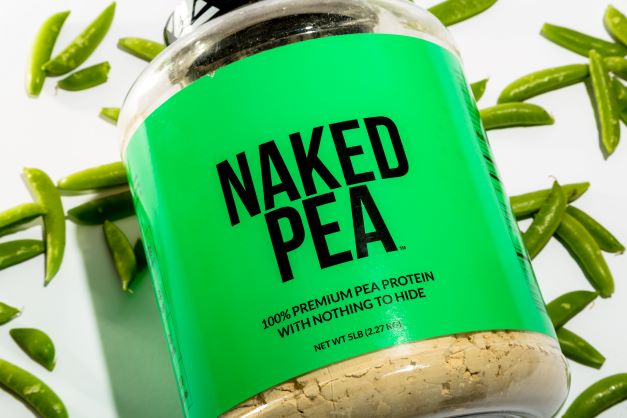Pea protein, like other plant-based protein powders, is largely under-appreciated. In truth, pea protein is not only an excellent source of protein, it also offers all sorts of other benefits. It is, after all, taken from peas. Which are vegetables. And vegetables are good for you.
Although we tend to only pay attention to the body-composition benefits of proteins, these supplements often contain tons of different compounds that can help us in a variety of ways.
Recent research, for example, suggests that pea protein powder could help lower high blood pressure and even improve your overall cardiovascular health.
Power of Pea Proteins
A 2011 study published in the Journal of Agricultural and Food Chemistry, tested the impact of pea protein powder on both hypertensive rats and humans. In both cases, pea protein powder showed a marked decrease in the subjects' blood pressure within just four hours of taking the supplement.
An earlier, 2005 study, looked more generally at plant proteins and their relationship to cardiovascular health. According to that study, replacing animal proteins with plant proteins can greatly reduce the risks of coronary heart disease.

What's Going On?
But how does this work? What's so special about pea protein powder when it comes to high blood pressure? The key seems to rest with a particular peptide – a small grouping of amino acids – found in pea protein powder.
It's important to realize, though, that peptides are both chemically and structurally different than proteins. Still, the peptide is bound up in protein supplements. The exact mechanisms at work here are still not fully understood.
It does seem, however, that these peptides have a powerful impact on the renin-angiotensin system – a biological system that regulates your blood pressure. By influencing the release of both renin and angiotensin, pea peptides work to quickly and effectively reduce blood pressure.

Just One Note...
So, couldn't you just eat peas? Not if your primary reason is to lower your blood pressure, no. In its natural state, the vegetable simply does not contain enough of the peptides in a bioavailable state to be useful.
You'd have to consume a ridiculous number of peas just to get a small amount of the peptides. And most of them still would not be useable by your body.
In order to capitalize on this unique benefit of peas, you have to take them in the form of pea protein powder.






